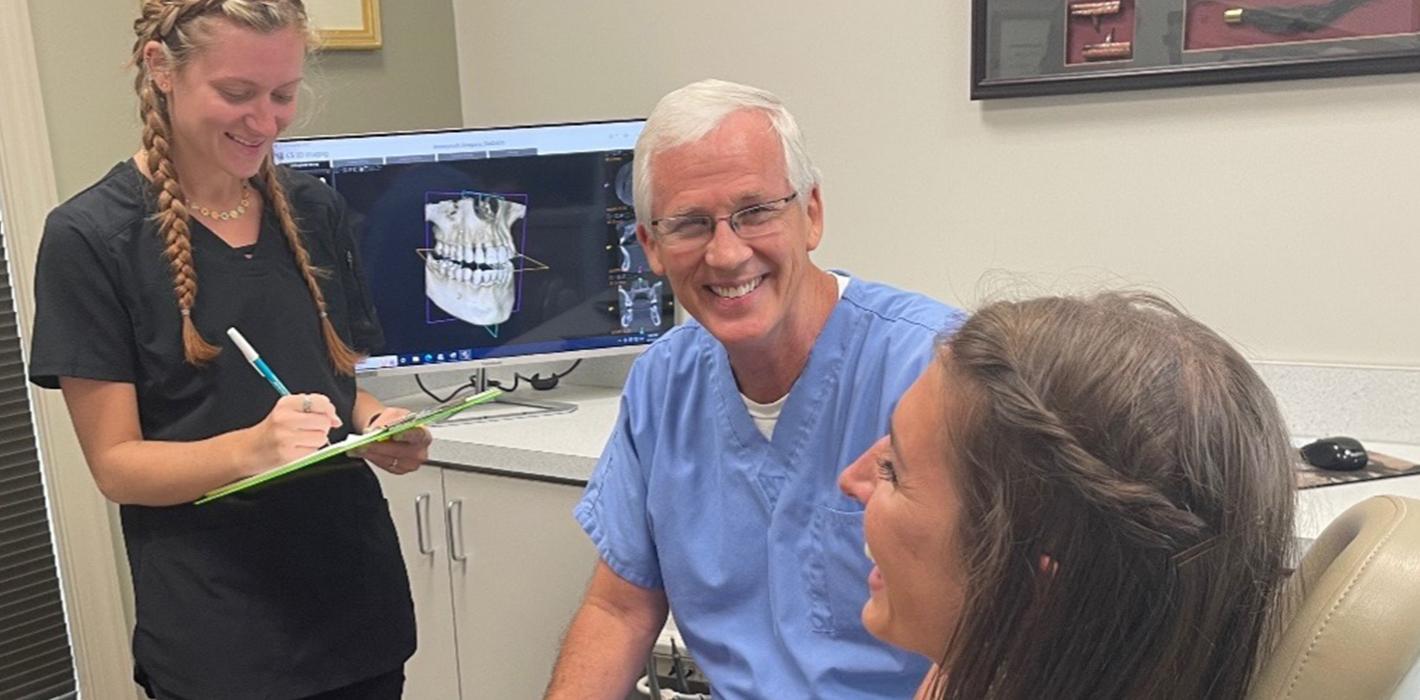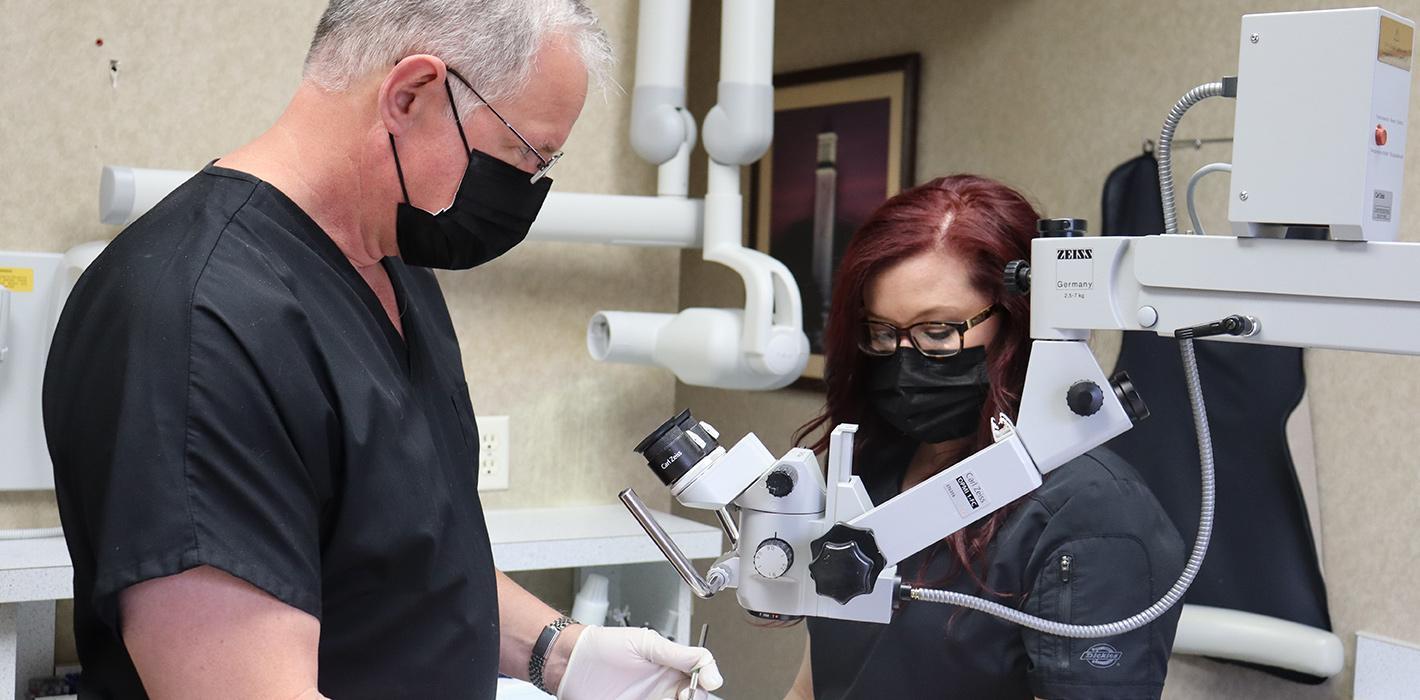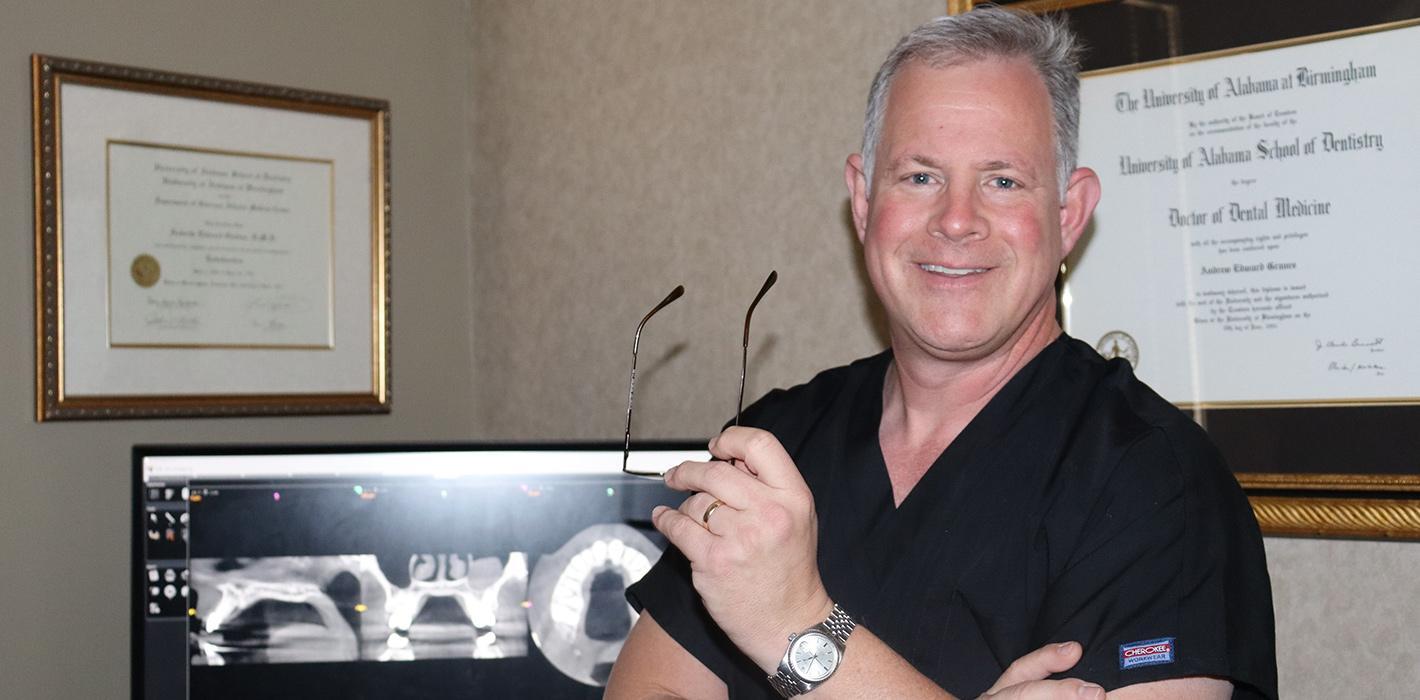Cracked Teeth

At West Alabama Endodontics, our goal is to provide our patients with immediate and effective endodontic care. When suffering from a cracked tooth, patients may experience a wide variety of uncomfortable symptoms that must be fixed as soon as possible by our experienced team of experts. Cracked teeth may result from a traumatic injury to the mouth or general wear and tear of your teeth. In many cases, pain may come and go–so it is essential to see Dr. James Mills if you experience any symptoms.
Symptoms of Cracked Teeth
When a patient’s tooth is cracked, there could be a variety of different symptoms. Some common symptoms include erratic pain while chewing or pressure from biting and pain when the cracked tooth is exposed to extreme temperatures (hot or cold.) Generally, you may experience constant or dull pain if you have a cracked tooth.
When a tooth is cracked, the hard outer parts of the tooth are broken or cracked, which can cause pulp irritation when you are chewing. Eventually, the pulp will become damaged to the point that it can no longer heal itself and potentially cause a deep infection–needing additional treatment from Dr. James Mills.
Treatment of Cracked Teeth
Our trusted team will do everything possible to save your cracked teeth and relieve any pain or discomfort. When it comes to treatment, it is best to visit us as soon as you experience any symptoms. There are many different types of cracked teeth, and treatment may be dependent upon which type, location, and extent of the crack you may have.
Types of cracks:
- Craze lines-These are tiny cracks that affect only the outer enamel. These cracks are very common in adult teeth.
- Fractured cusp-When a piece of a tooth’s chewing surface breaks off, often around a filling, it’s called a fractured cusp. A fractured cusp rarely damages the pulp, and usually doesn’t cause much pain.
- Cracked tooth-A cracked tooth means a crack extends from the chewing surface of your tooth vertically toward the root.
- Split tooth-The split tooth is identified by a crack with distinct segments that can be separated.
- Vertical root fracture-These are cracks that begin at the root of the tooth and extend toward the chewing surface. They often show minimal signs and symptoms and may go unnoticed for some time.
Contact West Alabama Endodontics Today!
We’re here to help you with any endodontic issue you may have. We encourage you to contact our team at 205-633-3636 so that we can help answer any questions or concerns you may have.

 Meet the Doctors
Meet the Doctors
 Blog
Blog
 Sterilization Protocol
Sterilization Protocol
 FAQs
FAQs


